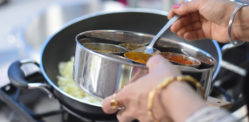Prevention should always be at the core of sexual health.
Sexual health remains one of the least discussed aspects of men’s well-being in South Asian communities, often overshadowed by cultural silence, stigma, and misinformation.
Many men grow up without clear guidance, leaving them vulnerable to misconceptions and unnecessary risks.
From performance issues to sexually transmitted infections, the consequences of neglecting sexual health can deeply impact both physical and emotional wellness.
These concerns are further complicated by generational attitudes that discourage open discussion about sexual needs and preventive care.
Yet, understanding the realities of sexual health is vital for long-term happiness, confidence, and stronger relationships.
Addressing these concerns with accurate knowledge and professional support can empower South Asian men to take better control of their bodies and their futures.
Understanding Sexual Dysfunction
 Sexual dysfunction affects South Asian men just as much as it affects men globally, with conditions like erectile dysfunction, premature ejaculation, and low testosterone being common.
Sexual dysfunction affects South Asian men just as much as it affects men globally, with conditions like erectile dysfunction, premature ejaculation, and low testosterone being common.
Despite this, many avoid seeking medical help due to shame, cultural pressures, and lack of awareness.
In some cases, men turn to traditional herbal treatments, which may not always be scientifically supported or safe for long-term use.
Modern medical treatments, including approved medications like sildenafil and therapies such as counselling, are highly effective and should not be ignored.
Consulting a doctor ensures men receive the safest advice tailored to their condition, rather than relying on potentially harmful remedies.
Acknowledging the problem without shame is the first step towards both physical improvement and greater confidence in intimate relationships.
Importance of Testing for HIV and STIs
 Regular testing for HIV and other sexually transmitted infections is a critical step that many South Asian men overlook.
Regular testing for HIV and other sexually transmitted infections is a critical step that many South Asian men overlook.
Men with multiple partners or who engage in unprotected sex are particularly at risk of infection.
Research suggests South Asian men face slower declines in HIV rates compared to other groups, highlighting the need for increased awareness and testing.
Options such as PrEP, a preventive medication that significantly reduces the risk of HIV, are underused within the community.
Routine check-ups with a healthcare provider not only detect infections early but also offer an opportunity for valuable sexual health education.
Protecting one’s health through testing safeguards not only the individual but also their partners and future families.
Cultural Attitudes and Communication
 Cultural and social attitudes play a powerful role in shaping how South Asian men view sexual health.
Cultural and social attitudes play a powerful role in shaping how South Asian men view sexual health.
Taboos around sex often silence discussions on safe practices, contraception, and even common concerns like erectile difficulties.
These cultural barriers can create harmful gaps in knowledge, leaving men unprepared to make informed choices about their sexual well-being.
Without proper communication, many rely on misinformation from peers or unverified online sources.
Creating safe spaces where men can openly discuss their experiences can help dismantle these taboos.
Encouraging education in schools, within families, and even among friends is essential to shifting the culture towards healthier, more open conversations.
Emotional and Mental Health Link
 Sexual health is never just physical; it is closely tied to emotional and mental well-being.
Sexual health is never just physical; it is closely tied to emotional and mental well-being.
Anxiety about performance, shame about dysfunction, or unresolved stress can all affect sexual satisfaction and self-esteem.
When left unaddressed, these issues can lead to long-term problems, including depression and strained relationships.
Counselling or therapy can provide practical tools for managing anxiety and boosting confidence, leading to healthier sexual experiences.
Normalising conversations about mental health is equally important, as many South Asian men still see seeking help as a sign of weakness.
By recognising this powerful connection, men can work towards both improved intimacy and better overall happiness.
Preventative Measures and Safe Practices
 Prevention should always be at the core of sexual health, and it begins with informed decision-making.
Prevention should always be at the core of sexual health, and it begins with informed decision-making.
Using protection such as condoms significantly reduces the risk of infections and unintended pregnancies.
Engaging in consensual, respectful relationships ensures that intimacy remains safe and enjoyable for both partners.
Regular health check-ups enable the early detection of potential issues, allowing for prompt treatment if needed.
Honest communication with partners about past experiences and expectations builds trust and reduces risks.
Developing these habits encourages a more responsible approach to sex, which benefits both men and their partners.
Traditional vs. Modern Remedies
 Traditional remedies remain popular among South Asian men, with herbal treatments often advertised as natural solutions for sexual dysfunction.
Traditional remedies remain popular among South Asian men, with herbal treatments often advertised as natural solutions for sexual dysfunction.
However, many of these remedies lack strong scientific evidence and can sometimes carry health risks.
Modern medical therapies, backed by extensive research, offer safer and more reliable solutions for conditions like erectile dysfunction or premature ejaculation.
Consulting a qualified doctor helps men understand which treatments are truly effective and which are simply marketing tactics.
Choosing professional care does not mean abandoning cultural practices, but it ensures health decisions are made responsibly.
Blending cultural traditions with medical science can create a balanced and safer approach to sexual wellness.
Overcoming Barriers to Care
 Despite the availability of treatments and resources, many South Asian men hesitate to seek help due to cultural shame and fear of judgment.
Despite the availability of treatments and resources, many South Asian men hesitate to seek help due to cultural shame and fear of judgment.
This reluctance often prolongs conditions that could be easily treated with proper medical support.
Normalising the idea of visiting a doctor for sexual health concerns is key to breaking this cycle.
Open conversations within communities can help reduce stigma and encourage men to view healthcare as a strength, not a weakness.
Education campaigns and positive role models can also play an important role in shifting attitudes.
By taking that first step towards professional advice, men set an example for healthier and more open-minded communities.
Sexual health is an integral part of a man’s overall well-being, yet too many South Asian men still shy away from addressing it openly.
Understanding dysfunctions, seeking regular testing, and practising safe sex all help maintain a healthier lifestyle.
Challenging cultural silence and embracing conversations about sexual needs are equally important for both personal confidence and stronger relationships.
Choosing evidence-based treatments over unverified remedies ensures safer outcomes, while acknowledging that mental health strengthens intimacy and happiness.
Overcoming the barriers to seeking care requires courage, but it ultimately benefits both individuals and communities.
By staying informed, proactive, and unashamed, South Asian men can reclaim their sexual health and live more fulfilling lives.






























































